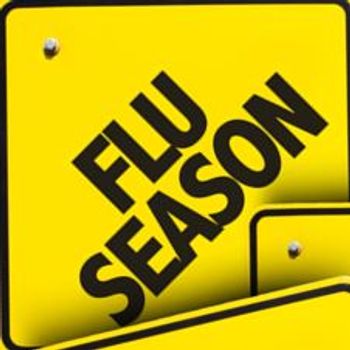
Expert Opinions Of The Optimal Administration And Safety Of An Influenza Vaccine
A panel of experts in vaccination share their thoughts on the optimal timing and administration of an influenza vaccine for the general public.
Episodes in this series

John Russell, MD, FAAFP: So, Wendy, closing this loop with you, we're recording this in the in the dead of summer. So, it must mean that flu vaccines are starting to show up in offices and drugstores. What are you saying is an optimal time for people to be vaccinated? Can you be vaccinated too early now?
Wendy Wright, DNP, ANP-BC, FNP-BC, FAANP, FAAN, FNAP: It changes every year, it feels like to me. So, there was a time where we all waited until October, November, recognizing that active immunity takes about 4 weeks to get good immune response. So we were waiting till October, November, and then the CDC [Centers for Disease Control and Prevention] came out and said, “Hey, let's get these in the arms of people as soon as you get them in the clinic.” Well, the manufacturers started shipping these vaccines to us in mid-August, and many of the retail clinics were getting them in August as well. And then I think it was 2 years ago maybe now that the CDC said, “Okay, let's not maybe give them out in July and August in the United States, but maybe let's move them into September and October.” But that's probably the most ideal time to give people protection all the way through May 1st, which generally is considered to be the end of flu season. But I want to add this caveat in. The best vaccine is the one that makes it into people's arms. And if you have a patient that you know is not likely to come back, you know, they all say they're going to come back and get their lipid profiles and 8 years later, they haven't come back fasting. Right. So now we're telling them, get it nonfasting, get it in their arms. I don't care if it's August 25th.
John Russell, MD, FAAFP: So, Chuck, you briefly touched about safety. So, I'm going to have a 2-part [question]. One, do you have any tangible safety concerns about flu vaccine? And the second part, since everyone on all social media now is a vaccine expert, [can] you speak to what you think is the vaccine efficacy we should be sharing with patients with regard to flu vaccines?
Charles Vega, MD, FAAFP:I think it's great that we have a democratic process where everybody can do extensive research, read for hours, and then become an expert. I'm really heartened by that. In terms of safety, though, flu vaccine is incredibly safe, has obviously incredible track record over time with, you know, millions of doses given in the United States every year. The most common thing I hear is that, “This vaccine gave me the flu.” That's impossible except for the live attenuated vaccine. So, you really want to not use that in folks who are immunocompromised, it's only for folks between 2 and 49 years of age, so we can put that one to the side. And the other big complaint I hear is egg allergy. “I have an egg allergy. Therefore, I can't get that vaccine.” Remember that current guidelines state that if they have a history of anything less than anaphylaxis, there's no limitation to giving them a vaccine and they don't need special treatment if they have hives after eating eggs. You can give the vaccine with some routine postvaccine monitoring. They don't have to be monitored actively for 30 minutes or anything like that. I think those are the big concerns. And then, finally, I guess I'll just close by stating that there's a lot of concern these days about long-term side effects of vaccines. So, you know, the most salient example I can think of would be an MMR (measles, mumps, and rubella) vaccine. You know, could it cause autism years after the vaccine was given? Now we know that's not true. That is not a possibility. And if you look broadly at vaccines, there have been serious side effects associated with vaccines. There's no denying that those are near all the time caught within the first year of their administration. So, in broad use or in clinical studies, there's been no case I can think of where there was a vaccine was given, thought to be safe over a period of 2 or 3 years, but then, lo and behold, 12, 14, 20 years later, there were some untoward side effects, cancer or heart disease or something like that. There's just no cases of that. For my patients who really have sincere doubts about long- term data, where I can’t provide them long-term data, say, in COVID-19 vaccine, here is the best example. I can cite that fact that the long-term untoward, unpredicted side effects just have not happened in the history of vaccination.
John Russell, MD, FAAFP: And what do you think, kicking around, is your efficacy rate for flu vaccines across the board?
Charles Vega, MD, FAAFP:I think JAM had it right on that, about 40%, 60%. But it's not so much about prevention of infection. We're preventing those complications. And that’s the big thing, because I see a ton of folks at high risk for complications. If you look at that list where it includes, you know, age, certainly very young, very old, but a host of chronic conditions that we see every day in our clinics, including in people of color. All people of color now are considered to be at higher risk of complications. That's based on epidemiologic data. Those are the patients we see every day that should be vaccinated.
Transcript is AI-generated and edited for clarity and readability.
Newsletter
Enhance your clinical practice with the Patient Care newsletter, offering the latest evidence-based guidelines, diagnostic insights, and treatment strategies for primary care physicians.

































































































































